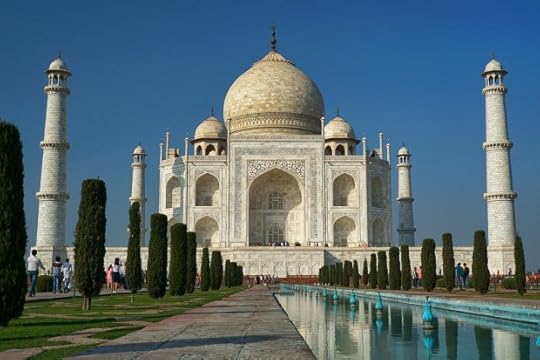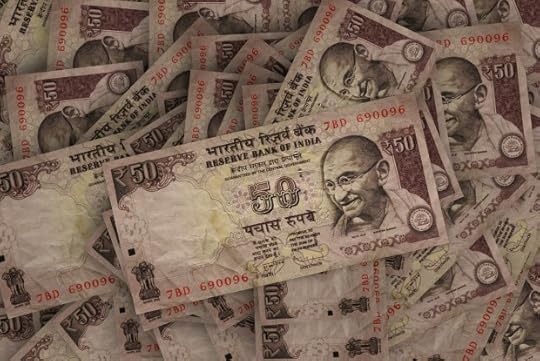Why it’s hard to be an author in India?
India has one billion people and needless to say, thousands if not millions of potential authors. I remember when I first started, eight years earlier and even until a few months ago when I submitted my manuscripts to Indian publishing houses and the response seemed like turtle movement. I haven’t heard from some of them after two years while they’ve had my full manuscript.

The Taj Mahal, India
Since then I’ve sold a series and five books outside the country to publishers all over the world and I’m super happy. In fact, when I sold my latest romance, Wish Upon A Bollywood Star, set in India, I was asked why I didn’t pitch it in India.
I took it internationally because of my disappointing experience with publishing houses in India. Besides, most of the feedback I received from international houses was very positive with detailed suggestions for my manuscript. Harper Impulse told me it was well paced and would actually fit category romance. Random House was equally nice in saying they had no doubt this manuscript would sell until Inkspell Publishing picked it up.
So why is it so hard to be an author in India?
Here are my top five reasons:
Branding
Publishing houses in India want authors with a brand. If you self publish and build your brand, the chances of a publishing house taking you on is much higher. By their own admission, Harper Collins India and Penguin Random House India are now picking authors who have sold 25,000 copies themselves, have a “celebrity” status, win an award abroad or are internationally recognized.
This is good news for international authors. If you’ve sold many books worldwide and are doing quite well, Indian publishing houses may sign you on to publish through them in India.
Contacts
It’s not what you know but who you know. There are very few gatekeepers in the publishing world in India. There are few agents and agency representatives. The gatekeepers here are largely editors. I’ve realized that steady relationships with editors is more likely to get you through to the publishing house than your pitch.
I remember pitching Painting Kuwait Violet to houses in India and had to keep nudging for a reply. Solstice Publishing has finally bought the book this year and the cover is ready (which I’ll reveal soon). If you’re constantly interacting with the big editors then this is a niche that can work for you. If not, it’s a hard querying road. And your manuscript has little chance in the query pile.
As an author, I have more luck contacting radio stations and libraries in Mount Vernon, NY than in Borivali, Mumbai for engagements, book signings and author PR. Because who you know is more important than what you know.
Reading audience
The English reading audience in India is quite eclectic. English is not the first language for the majority of the population. Most people who do read English books are reading best sellers. Think Patterson, Dan Brown, Danielle Steele or JK Rowling. They’d still stick with Chetan Bhagat than take a chance on a new Indian author with a small or nor brand and no visibility.
Another reason may also be that they have the same mindset when it comes to international approval. This doesn’t apply to authors only, rather singers, musicians, sportsmen outside of cricket and artists also come under this umbrella. If you are appreciated abroad you must be worth something and so deserve some attention. But it’s rare to see the opposite happen.
The reading categories are also quite shoehorned. Indian audiences prefer fantasy, myth and escapism. Books on women’s fiction, grit, literary fiction, prose and crime are met with overt criticism. For example, take Arundhati Roy’s books. She won a Booker for one. Her fiction is rich in prose. Few Indians write in her style. She has a vivid sense of description that is almost cinematic. Her work is rich in literary tools like similes, metaphors and alliterations giving an almost musical cadence to her work.
Yet, if you see the reviews on Amazon India, there’s far more nitpicking over her personal life, her career, and even her social activism rather than the book itself. Few Indians and you can identify them by their names have truly appreciated the depth involved in creating the masterpieces she has in her works or the prosaic quality of her writing. It is hard pleasing this audience whose first natural instinct is to criticize to death.
Cost
It’s very expensive to publish in India. I remember print copies for my Christian fiction work cost almost 500 bucks for an 80 page book and that’s ridiculously high. People aren’t going the spend this money on a book with a highly inflated market. Add to it the taxes and the cost of shipping. It has caused the whole market to spiraled downwards.

As a result, you’ll see many educated Indians buying counterfeit books at a quarter of the price on railway platforms or by the side of the road and since they’ve illegally bought a book, have no way of reviewing them or giving the author any credit. Ebooks have become relatively easy to buy but the obstacle is still the same. With counterfeit still available and no strict copyright laws in India, people will still buy cheap or free versions of books because of the high cost.
So if you publish in India selling is hard to this audience.
Reading is a drying hobby
There are few people who read. Let’s be honest, young people are just not into literature and reading. If you look at the language being used today, you’ll be appalled. Conversational English is spoken with very little thought.

Few people encourage reading the classics . With the overload of information and competing entertainment, the reading community is shrinking. A sad day for book lovers but if you’re in a community where there is still a local library, you’re in a good place with a readership. But the ancient practice of reading to kids before bed or reading ourselves before bed time has all but vanished. With a smaller community, new authors have to compete for a smaller audience.
So these are my top reasons why its hard to be an author in India. There are outliers to all this. Authors who chucked convention and just self published, authors who found agents like Chitra Divakaruni and authors who started small, like me. 



